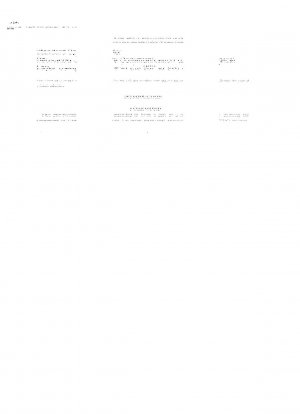ASTM PS111-98
Standard Provisional Specification for Dedicated Short Range Communication (DSRC) Physical Layer Using Microwave in the 902 to 938 MHz Band
- Standard No.
- ASTM PS111-98
- Release Date
- 1998
- Published By
- American Society for Testing and Materials (ASTM)
- Status
- 2002-01
- Latest
- ASTM PS111-98
- Replace By
- E2158
- Scope
1.1 Purposes:
1.1.1 This provisional specification defines the Open Systems Interconnection (OSI) layer 1, physical layer, for dedicated short-range communications (DSRC) equipment, operating in two-way, half-duplex, active and backscatter modes.
1.1.2 This provisional specification establishes a common framework for the physical layer in the 902 to 928 MHz LMS band. This band is allocated for DSRC applications by the FCC in Title 47, Code of Federal Regulations (CFR), Part 90, Subpart M and by Industry Canada in the Spectrum Management, Radio Standard Specification, Location and Monitoring Service (902-928 MHz), RSS-137.
1.1.3 This provisional specification defines an air interface for both wide-area (multi-lane, open road) and lane-based applications that enables accurate and valid message delivery between moving vehicles randomly entering a communications zone and fixed roadside communication equipment. This air interface also enables accurate and valid message delivery between moving or stationary vehicles and fixed or portable roadside communication equipment.
1.1.4 This provisional specification does not include associated measurement guidelines for verification of the formulated requirements in this standard. It is intended that readers will be able to refer to the ASTM standard on, Technical characteristics and test methods for data transmission equipment operating in the 902 to 928 MHz LMS Band for the measurement guidelines, when it is developed.
1.1.5 This provisional specification does not consider any one specific ITS application, but rather describes a communication means to be used by several ITS applications. This provisional specification also may be used for any non-roadway environment that can utilize this type of dedicated short-range radio communications.
1.1.6 While this provisional specification defines frequencies and power levels that are compatible with the North American regulatory requirements the technical methodology used in their selection can be utilized in other regions of the world.
1.2 Equipment:
1.2.1 The DSRC equipment is composed of two principle components: road-side equipment (RSE) and on-board equipment (OBE) or transponder.
1.2.2 The RSE controls the protocol, schedules the activation of the OBE, reads from or writes to the OBE, and assures message delivery and validity. It is intended for, but not restricted to, installation at a fixed location on the roadway.
1.2.3 The OBE communicates with the RSE and is intended for, but not restricted to, installation in or on a motor vehicle.
1.2.4 The RSE must be capable of communicating in the closely spaced OBE in the same lane or closely spaced OBE in adjacent lanes.
1.2.5 This provisional specification provides requirements for the communication medium to be used for exchange of information between RSE and OBE. Active, backscatter, and dual-mode technologies are described.
1.3 Structure:
1.3.1 This provisional specification defines an open (non-proprietary) architecture using the simplified OSI seven-layer reference model (per ISO 7498). The following sub-section describe the relationships of the OSI layers that support DSRC.
1.3.1.1 The physical layer (Layer 1) is defined as a half-duplex radio frequency medium, in the 902 to 928 MHz band. Layer 1 interfaces with Layer 2.
1.3.1.2 The data link control layer (Layer 2) defines a Time Division Multiple Access (TDMA) messaging protocol in which both the downlink and uplink are completely controlled to ensure reliable completion of each transaction in the communications zone. This layer includes data organization, sequence control, flow control, error detection and error recovery among other functions. Layer 2 interfaces with Layer 7.
1.3.1.3 The application layer (Layer 7) defines specific functions and message formats to support ITS and other services. Implicit or......
ASTM PS111-98 Referenced Document
- ISO 7498 Information processing systems; open systems; interconnection; basic reference model; technical corrigendum 1
ASTM PS111-98 history
- 1998 ASTM PS111-98 Standard Provisional Specification for Dedicated Short Range Communication (DSRC) Physical Layer Using Microwave in the 902 to 938 MHz Band
